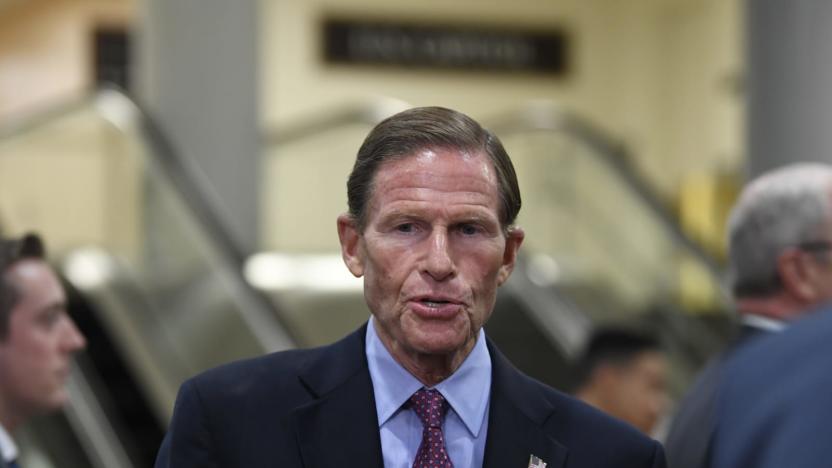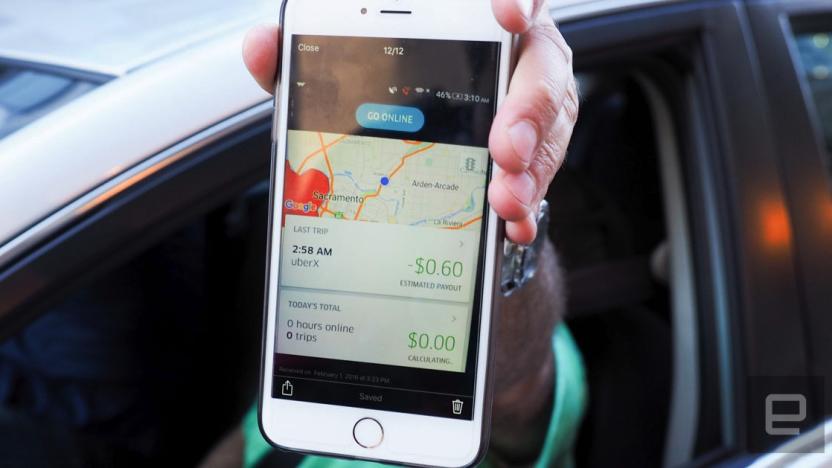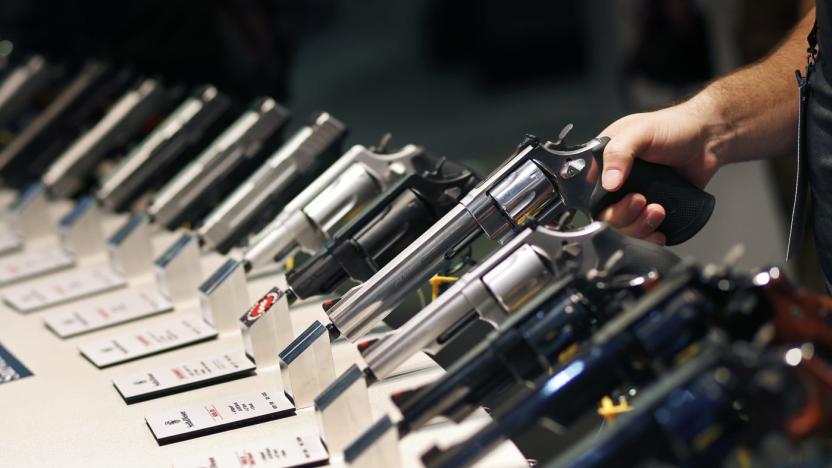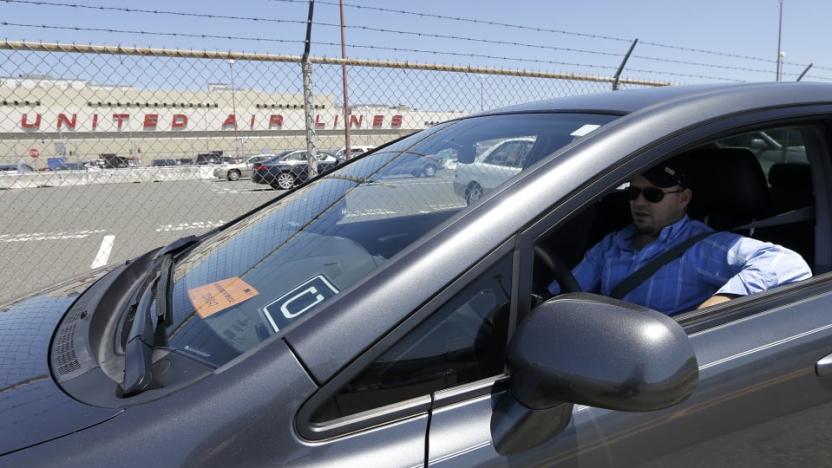backgroundcheck
Latest

Senator urges Uber and Lyft to run fingerprint background checks
A senator has called on Uber and Lyft to share details with each other about contractors they've banned to clamp down on dangerous drivers who've been kicked off one platform signing up to the other. Sen. Richard Blumenthal (D-Conn.) has also urged them to conduct fingerprint background checks on drivers.

Airbnb is buying a scam-fighting background check technology
Airbnb is getting more serious when it comes to keeping fraudulent listings and shady renters off the website. According to Bloomberg, the short-term rental platform is buying Trooly Inc., a startup specializing in background checks to fight off scammers. Airbnb has been using Trooly's service to authenticate user identities since 2015, but now the company is making its tech an integral part of the platform by purchasing its intellectual property and its engineering team.

Over 8,000 Uber, Lyft drivers fail new Massachusetts background check
More than 8,000 Uber and Lyft drivers have been denied licenses to operate in Massachusetts under a new, stricter state background check law, according to the Boston Globe. The most common reason? Issues with the driver's license status, including suspensions.

Uber can't dodge assault lawsuit because of contract drivers
Uber drivers may legally be contractors rather than employees, but that doesn't absolve the company of liability in assault cases. A federal judge in California has denied the ride-sharing company's motion to dismiss a lawsuit for attacks against two riders. One of Uber's main arguments was that its drivers aren't employees, so it isn't responsible for their actions. However, the judge ruled that "plaintiffs have alleged sufficient facts to claim plausibly that an employment relationship exists."

Facebook has banned person-to-person gun sales
Apparently you could buy and sell guns on Facebook before today. Note the past tense there. The New York Times says that this change is in response to President Obama's recent push for Zuckerberg and Co. to cull the person-to-person transactions from the social network and Instagram -- similar to how it treats sales of marijuana, prescription drugs and other illicit substances. Licensed gun dealers are still fine; the idea here is curbing the background-check-free sales that can occur on a person-to-person basis.

Uber will allow nonviolent criminals to drive in California
Uber doesn't have the best track record when it comes to screening its drivers, and now the transportation company is changing those policies. Chief Security Officer Joe Sullivan said in an interview the company is changing its screening process to give nonviolent criminals a chance to drive in California. Under the old rules, applicants were rejected if they had been convicted of certain crimes. Now, those who committed nonviolent or nonsexual offenses, like shoplifting or check fraud, will be given an opportunity to work in the state.

Uber's background checks reportedly missed criminal records
Los Angeles and San Francisco are convinced that Uber's background checks aren't as good as the company claims they are, and it looks the two cities might have ample proof that this is a real, consistent problem. Their district attorneys have amended a lawsuit against Uber to provide evidence that the ridesharing outfit didn't unearth the criminal records of 25 drivers between the two regions. Several of those drivers were reportedly convicted of extremely serious crimes, including murder and sex offenses. The attorneys argue that this is proof that Uber is making "false and misleading" claims. It's touting a tight screening process, but genuine threats to passengers are slipping through the cracks.

OPM director steps down after hacks affected more than 20 million
In the last year the federal government's Office of Personnel Management has been hit by at least two separate attacks by hackers. The first one that came to light affected the info on some four million people, while another has apparently seen sensitive background check info on more than 20 million people fall into the wrong hands. While OPM director Katherine Archuleta pledged yesterday to stay on and lead efforts to secure the department's systems, today ABC News and The Hill report Archuleta handed in her resignation to President Obama.

Uber explores using biometrics and lie detectors to screen drivers
Uber has come under fire for allegedly doing little to protect passengers from unscrupulous drivers, and it's determined to improve that reputation -- in some cases, using relatively unusual methods. The ridesharing company's recently hired Head of Global Safety, Philip Cardenas, tells customers that Uber is exploring numerous techniques for verifying drivers, such as biometrics, voice fingerprinting and lie detector tests. "Scientific analysis and technology" should help make up for gaps in background check infrastructure around the world, Cardenas says.

AOptix e-Gate could improve global airport security, replace ID checks with iris scans
You're certainly not alone if you think that the current airport security process is far from ideal. AOptix hopes to streamline and speed up security procedures by replacing manual boarding pass and ID checks with a biometric kiosk called e-Gate. The new system, which verifies passenger identities by matching an iris scan with a boarding pass, just received (IATA) approval, and is currently being tested in three airports around the world. It's not as slick as a similar concept we saw earlier this summer, but e-Gate could be implemented with a trusted traveler program, creating special lanes for pre-approved frequent fliers -- similar to the US Customs Global Entry system in place today. We don't see it replacing X-ray machines and check-in interviews, but it could remove human error from the equation -- at least when it comes to verifying your identity. Jump past the break for the full scoop from AOptix, or you can check out the system for yourself at the Future Travel Experience in Vancouver. Update: e-Gate is in fact a potential component of Checkpoint of the Future, which we saw conceptualized in June.%Gallery-133007%

IATA's Checkpoint of the Future uses biometric IDs to separate do-gooders from terrorists (video)
This, ladies and gentlemen, could be your Checkpoint of the Future -- a new airport security prototype that promises to move away "from a system that looks for bad objects, to one that can find bad people." Unveiled at the IATA's annual conference in Singapore yesterday, the setup is comprised of three, 20-foot long detectors -- one for "known travelers," one for high-risk flyers, and one for everyone else. Instead of funneling passengers through the same checkpoint, then, the prototype would use eye scanners and biometric chips to verify their identities and analyze their personal history, before dividing them into groups. People who complete and pass government background checks would waltz through the fast pass lane with their carry-on luggage in tow, whereas those deemed particularly risky would have to undergo a more intensive, full-body scan within the "Enhanced" security lane. The rest of us, meanwhile, would be directed to the "Normal" detector, which would automatically scan us for liquids, metals and everything that is evil. The IATA says this risk-based approach would reduce security lines and lower airport costs, but it would still require governments to share data on their own citizens, which could pose a major hurdle to widespread adoption. For now, the IATA and governmental agencies are still hammering away at the details and have yet to announce a pilot program, but you can check out an audio-less demo video of the prototype, after the break.









